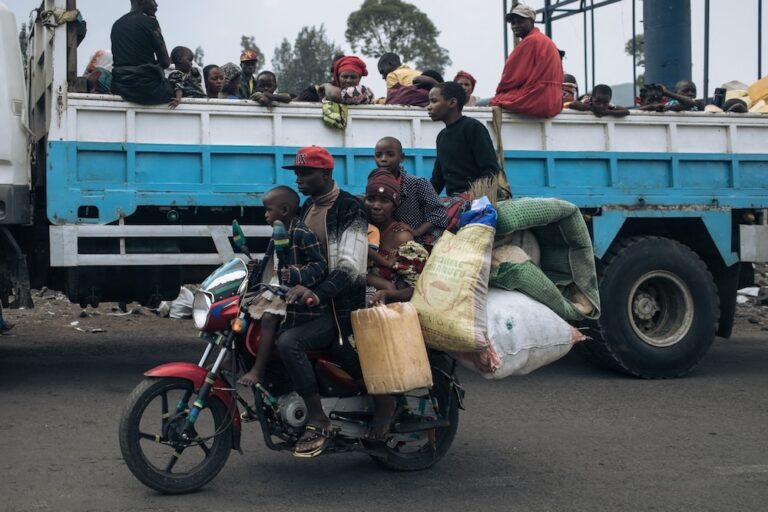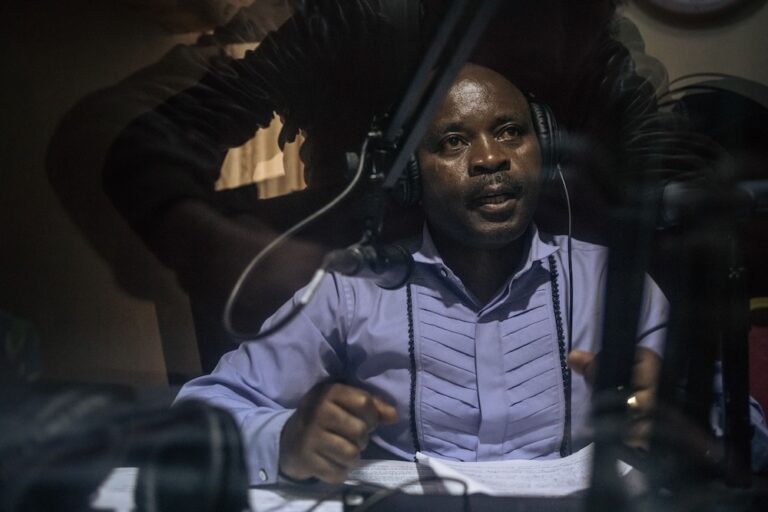(ARTICLE 19/IFEX) – ARTICLE 19, the International Centre Against Censorship, on 17 September 1998 called on the International Criminal Tribunal for Rwanda to investigate reports of calls by Congolese President Laurent Kabila for the killing of Tutsis. If press reports of Kabila’s statements prove to be accurate, ARTICLE 19 will be urging the Tribunal to […]
(ARTICLE 19/IFEX) – ARTICLE 19, the International Centre Against
Censorship, on 17 September 1998 called on the International Criminal
Tribunal for Rwanda to investigate reports of calls by Congolese President
Laurent Kabila for the killing of Tutsis. If press reports of Kabila’s
statements prove to be accurate, ARTICLE 19 will be urging the Tribunal to
indict the President for incitement to genocide. Hundreds of Tutsis have
been massacred in the Democratic Republic of the Congo in recent weeks.
ARTICLE 19’s Executive Director, Frances D’Souza, said:
“As a freedom of expression organization, we are very wary about calling
for any speech to be banned. But, it appears that President Kabila has been
grossly abusing his office to call for the genocide of Tutsis. The
situation in the Congo is extremely unstable and there appear to be many
Congolese who are prepared to heed his call.
“If the new International Criminal Court were in place, then this would be
a case for them. But, instead we are calling for the mandate of the Rwanda
Tribunal in Arusha to be extended to allow it to investigate Kabila. The
silence from the international community over the massacres of Tutsis has
been astounding. It seems that no one has learned the lessons of Rwanda in
1994,” she added.
Earlier this week, the Southern African Development Community (SADC),
meeting in Mauritius, issued a statement in support of the Kabila
government and endorsing military action by Zimbabwe, Angola and Namibia
against Congolese rebels backed by Uganda and Rwanda. The Zimbabwe
contingent is led by Air Marshal Perence Shiri, who was commander of the
army’s Fifth Brigade in 1983-84 when it killed thousands of civilians in
Matabeleland.
ARTICLE 19 has been increasingly concerned about the Congo situation since
receiving reports in recent weeks of broadcasts on government radio calling
for Tutsis to be killed. (For example, in early August, the Congolese
government radio station broadcast the following words: “People must bring
a machete, a spear, an arrow..and the like, in order, dear listeners, to
kill the Rwandan Tutsis.”) The broadcasts echoed those by the notorious
Radio Television Libre des Mille Collines in Rwanda before and during the
1994 genocide. The use of “hate radio” was a clear warning of the impending
massacres, but led to no effective response from the international community.
ARTICLE 19 believes that tough international action is needed to stop the
massacre of Congolese Tutsis. If the Rwanda Tribunal were to investigate
Kabila on genocide charges, this would be a clear sign that the rule of
international law applies not only to the defeated, but also to incumbent
governments. This is in line with the recently adopted Treaty on the
International Criminal Court.


